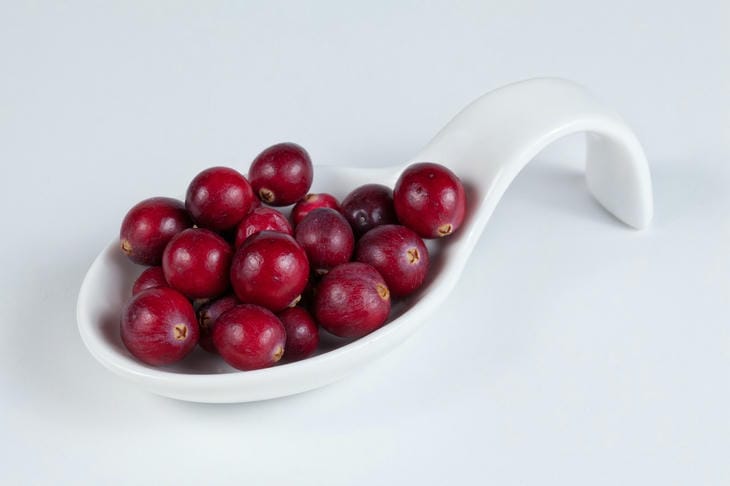Cranberry: what diseases it treats and how much you can eat per day
In autumn there are fewer and fewer fresh berries.
However, there is a berry that can be kept fresh for a very long time, and we can consume it in late autumn and winter.
We are talking about cranberries. They are useful fresh, dried, frozen, because they are rich in vitamins, minerals, antioxidants, and other nutrients.
This berry will improve your health, can help normalize blood sugar and cholesterol levels, improve heart health, oral health, and protect against certain types of cancer.
Fresh cranberries contain more than 24 antioxidants. Some studies suggest that the antioxidant content of cranberries may protect against 17 types of cancer.

The extremely rich composition of cranberries activates the immune system and supports the body.
“Vitamin cocktail” in combination with antioxidants and microelements makes a person more resistant to seasonal colds.
A large combination of antioxidants with different properties gives cranberries the ability to fight inflammation in the body.
By destroying free radicals, the product helps to strengthen the overall immune system.
Regular consumption of cranberries helps prevent the development of certain chronic diseases, such as diabetes.
At what age can children eat cranberries?
Nutritionists say that fresh cranberries, cooked and crushed, can be introduced as soon as your baby is ready to start eating solids, which is usually around 6 months. The cranberries should be mashed and boiled.
Dried cranberries (and dried fruits in general) should not be given to infants because they are sticky and difficult to chew.
Cranberries are not a common food allergen, and if there is an allergy to salicylates, which are abundant in dried fruits, then there may be an allergy to cranberries. If a child is allergic to apricots, pineapples, prunes or tangerines, he may also be allergic to cranberries.
Who shouldn't eat this berry?
If you are taking a blood thinner such as warfarin, you should consult your doctor before consuming cranberries (fresh or dried). Cranberries contain quite a bit of vitamin K, which can interfere with the medication's action.
People with kidney stones need to be careful with this berry because drinking a lot of cranberry juice can potentially increase the chances of developing kidney stones.
Consuming berries in large quantities can cause stomach upset and diarrhea, so you need to be moderate: 50-100 g of berries per day is quite enough.
How to Store Cranberries
This berry, unlike others, can be stored for a long time. Fresh cranberries can be stored in the refrigerator for up to one month, and in the freezer - up to one year. Dried cranberries are best stored in a tightly sealed package and consumed before the expiration date indicated on the package.
When the berry will bring more benefits
Remember: cranberries are most beneficial when fresh, prepared without adding sugar, honey, or syrups.
Cranberries can be taken as a snack, for example, 30 g of dried cranberries and 30 g of nuts. A handful of fresh or dried berries can be added to yogurt or cottage cheese.
A tablespoon per serving of chicken, turkey or duck fillet salad will add a special taste, they go well together. You can combine berries with banana and eat such puree for dessert or pour it over porridge, cottage cheese.
For reference
Cranberry is a subgenus (group) of flowering plants of the Ericaceae family, uniting evergreen creeping shrubs growing in swamps in the Northern Hemisphere.
